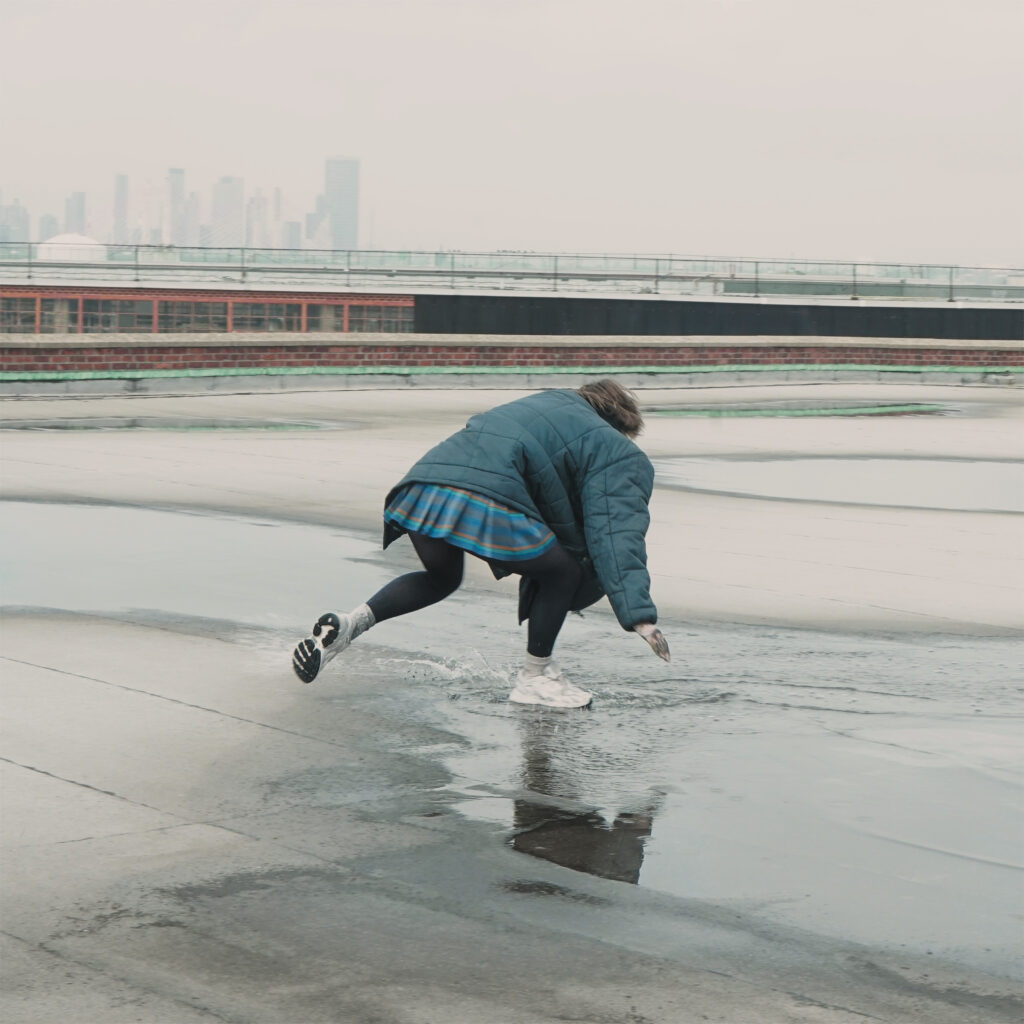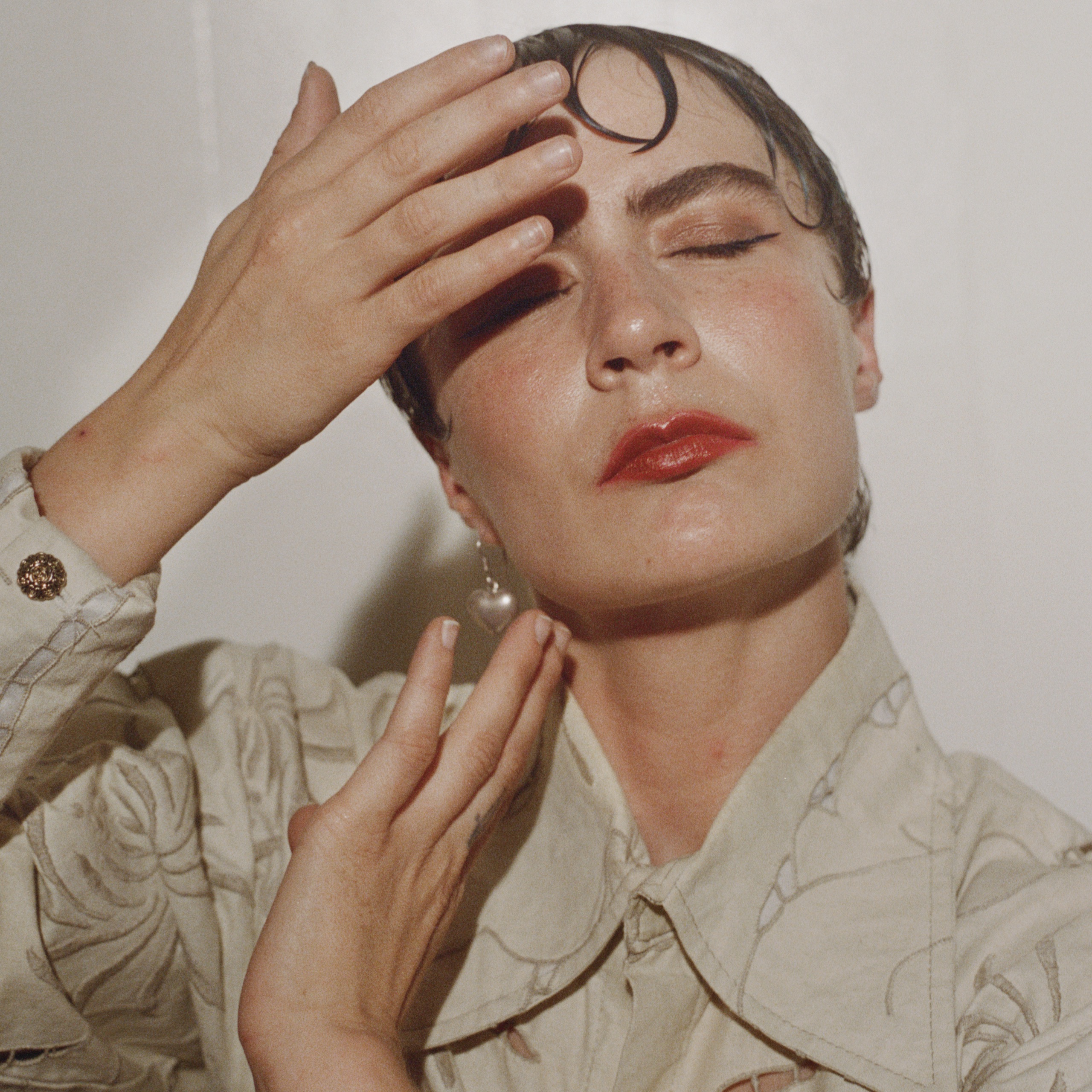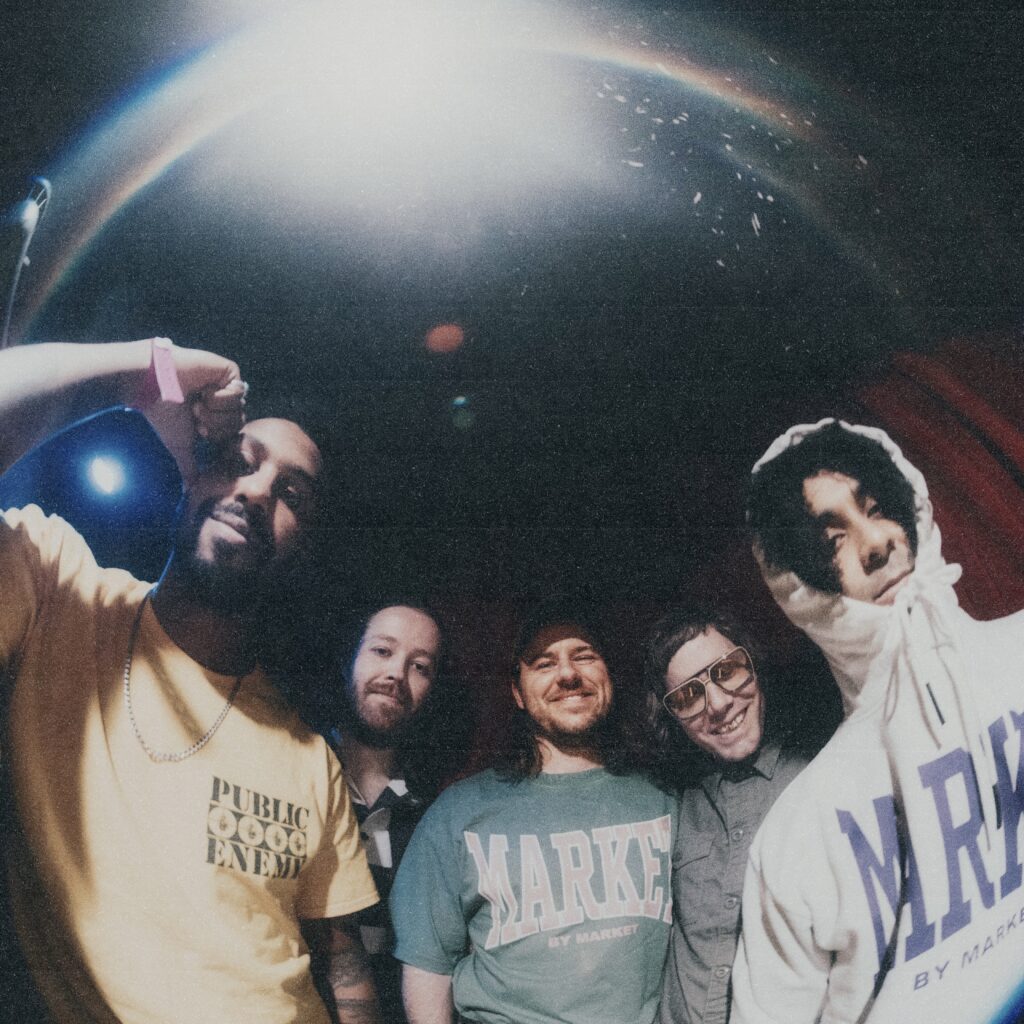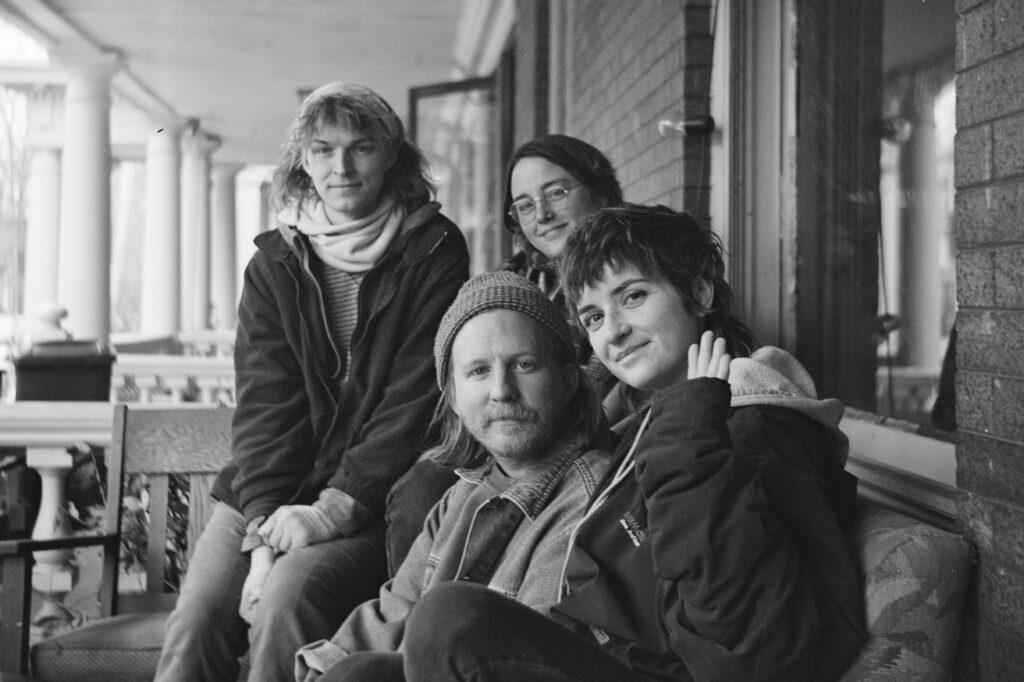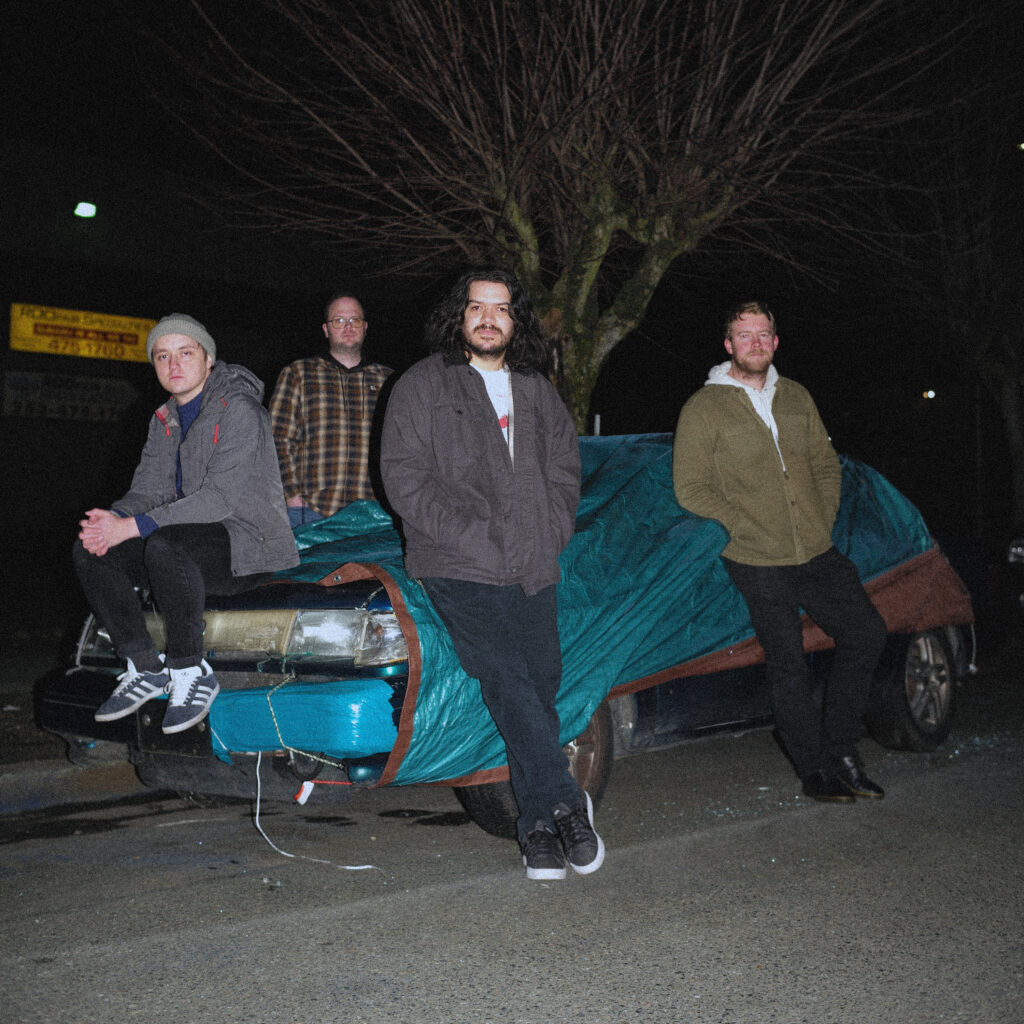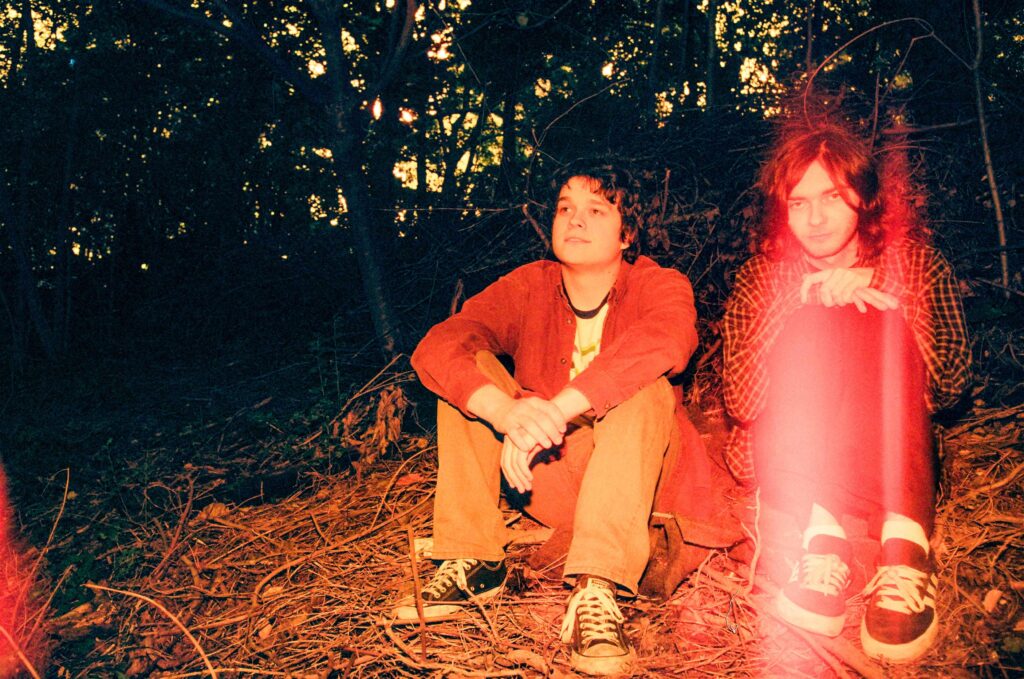Mary Jane Dunphe is a poet and musician who tells stories–not through direct narrative but through embodied presence and performance, through cinematic and fragmented memory, the wild transmission of feeling. Her versatile songwriting has garnered critical acclaim in past projects such as the visceral punk of Vexx and Gen Pop, the minimal dream pop of CCFX and CC Dust, and the lonesome country-rock of The County Liners–and now Dunphe’s debut solo album, Stage of Love, is the start of a captivating new chapter.
The process of making Stage of Love began in 2019 at FEAL Studios in Brooklyn. At first the pace was slow, as Dunphe set out to define the sound of her solo project, but her self-assurance grew with each new song. “I think I was feeling tired of relying on bandmates’ consistent engagement and was also feeling more confident in my ability to write on my own, and was curious to discover what kind of sounds I would make,” she explains. “I think the kind of music you make is partially intentional and partially something that’s innate and you can’t control it. If you believe this then you can relax into listening to yourself rather than forcing some hyper-specific sound.”
The songs began to progress, influenced in part by the wide range of music Dunphe was enjoying in solitude–Robert Wyatt, Section 25, Tones on Tail, Harold Budd, Operating Theater, Bowie, Prince, Bjork, The Blackbyrds, Marvin Gaye, and Gloria Ann Davis –music that she describes as “both maximal and sincere,” a quality that she sought to capture on Stage of Love. Recording continued in 2021 in Los Angeles with longtime friend Todd Berndt (The Berries) along with Jimmy Dixon (The Berries, Local Natives) at Kingsize Studio, and was finally completed in 2022 with Ben Greenberg (Uniform, The Men), before being mastered by Heba Kadry (Björk, Slowdive, Beach House). “I think it’s kind of antiquated to try and make an album like I did,” Dunphe says. “To spend all my money trying to write in the studio, to take years to do so, to slow cook it. We live in a very anti-masterpiece culture today–I’m not saying that this is a masterpiece at all, it’s more a document of me getting to know myself on a creative level, but it’s an attempt at it, there’s an ambition in it stemming from my adoration for the heroes of music’s days of yore.”
That ambition–the all encompassing desire to make something truly great–is palpable throughout Stage of Love, and upon listening it’s clear that Dunphe’s patience and commitment in the studio has paid off. The resulting album is an idiosyncratic assemblage of pulsating drum machines, shimmering synths and guitars, and Dunphe’s singular soaring voice–all coalescing into highly danceable avant-pop songs. Sequenced as a long walk alone that starts at midnight and ends at 5:00 am with the birds chirping, the album’s ten tracks are full of longing but also questioning. What do you do at night that you can’t do during the day? When at night you plead, who do you plead to? What don’t you have, yet still you give away, tirelessly? “It’s me ruminating on desire and its stickiness,” Dunphe says. “It’s me feeling so alone and simultaneously celebrating it and damning myself for it. It’s the freedom and the prison of living a life in solitude which is how I have felt the past three years for sure. It’s dreams too, and sleep demons, and open fields, and meaningful pauses.”
The songs tremble with the contradictions of human emotion–want and detachment, tension and relief, connection and escape, power and powerlessness–all reverberating together in Dunphe’s otherworldly version of pop. The album opening title track sets the mood with an effects-drenched bass line and thumping beat that build into a euphoric chorus. The track encapsulates many of the album’s themes, Dunphe explains: “It’s about longing and trying to understand the difference between desiring love and just desiring. It’s about the pleasure and the suffering of the lack, and breathing into it.”
The motif of breathing reappears in other songs like the hooky, “Always Gonna Be The Same”, which draws on a period of physical and emotional pain–specifically, an emergency dental surgery. “While I was in surgery the dental surgeon shouted at me, ‘Open up your eyes, you are in control!’” Dunphe recalls. “I was panicking and choking and they couldn’t numb me because my tissue wouldn’t take it. It was gruesome but a wake up call–the idea of breathing into things that were causing me extreme pain.” The song crests into a triumphant refrain to match the mental recontextualization in Dunphe’s lyrics. “Giving up actually can be a victorious act. I don’t have to hold onto the pain in order to honor my journey, I can release it and everything else that doesn’t serve my growth, without a grudge. It’s about forgiving yourself for getting hurt.”
Tracks like “Phantom Heart” and “Moon Halo” highlight Dunphe’s ability to bridge dreamy atmosphere with expert songcraft, while elsewhere a cover of Roland S. Howard’s “I Know A Girl Called Johnny” fits right in with her own lyrical observations of devotion and desire. On album-standout “Longing Loud” Dunphere paints a gentle fantasy of being read to in bed by someone you love. “It’s about someone who inspired me to be a better version of myself just from a chance meeting,” she says. “This sort of reaching that you feel inside yourself when someone wakes you up to the feeling that maybe you deserve it—’it’ being everything.”
Stage of Love begins to come to a close with “Starless Night,” a haunting piece that forgoes the widescreen synths for scattered, discordant notes. The song’s sparse arrangement feels loose and exposed compared to the tight drum machine heartbeat of much of the record, leaving the floor open for Dunphe to unleash the full power of her voice. It’s a striking moment, and as it fades into the chirping morning birds of “Saint Dymphna” it feels like some kind of freedom has been achieved in the release–even if there’s no answers yet, there’s always the next night.
